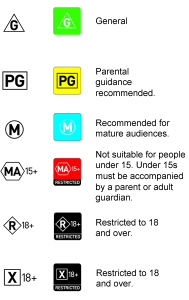By Kelly Patricia O’Meara
Published by CCHR International
February 27, 2017
A new book, The Sedated Society: The Causes and Harms of our Psychiatric Prescribing Epidemic, joins an ever-expanding library of information that further exposes the known serious harms, including brain damage, associated with prescribed psychiatric drug “treatments.”
International mental health industry watchdog, Citizens Commission on Human Rights (CCHR) says that with nearly 80 million Americans taking at least one psychiatric drug, this scathing critique about the rising psychiatric drug health issue, created by the psychiatric-pharmaceutical industry, lays bare the methodology and repercussions of hooking entire populations on prescription mind-altering chemicals.
The data are alarming. According to data obtained by CCHR from the IMS Health Vector One National database, in 2013, 10,291,860 Americans, alone, were prescribed ADHD drugs, 41,226,394 were prescribed antidepressants, 6,845,303 were prescribed antipsychotics and 36,472,663 were prescribed anti-anxiety drugs.[1]
The compilation of research provided in the book by ten global experts and edited by James Davies, PhD, argue, among many things, that the all too familiar claim linking chemical levels in the brain and depression (the never-proved chemical imbalance theory) is deeply flawed. In fact, according to one of the book’s contributors, Professor Peter Gotzsche of the University of Copenhagen, “The disease model has been a disaster…I have never seen any convincing evidence showing a psychiatric disease is causing brain damage, but have seen plenty that medication causes brain damage.”[2]
What damage, exactly, does the psychiatric medication cause? The possible adverse effects associated with antidepressant use, for example, is widely known and, in fact, the Food and Drug Administration (FDA) has made it abundantly clear by mandating that the list of adverse effects be made public and listed on the package inserts. The list of possible adverse reactions is lengthy: suicidality, mania, psychosis, depression, hallucinations, abnormal dreams, abnormal thinking, depersonalization, paranoid reaction, delusions, confusion and violent behavior to name a few. Click here to find out more about psychiatric drug side effects.
The experts who contributed to the book explain in detail the psycho-pharmaceutical industry’s deliberate withholding of damaging information associated with Selective Serotonin Reuptake Inhibitors (SSRI) antidepressants (including suicidal thoughts and behavior) during clinical trials, which falsely claimed improved outcomes, allowing for drug regulatory approval. However, it was during later in-depth consideration of all the clinical trials associated with all of the SSRI antidepressants on the market that the drugs were found to fall far short of the “miracle pill” promotion after FDA approval and were only minimally more effective than a placebo (sugar pill). Other studies have shown the drugs to be less effective than placebo with Newsweek once reporting the evidence suggests that antidepressants “are basically expensive Tic Tacs.”[3]
Professor Irving Kirsch of the Department of Psychology at the University of Hull in the United Kingdom, who said The Sedated Society “should be required reading for all medical students,”[4] is responsible for nearly singularly challenging the effectiveness of antidepressants when he reviewed all the clinical trials of antidepressants submitted to the FDA. His findings rocked the psycho-pharmaceutical world: that the results of a meta-analysis of antidepressant studies showed that people “got better on placebo, and the difference between [placebo and antidepressants] was small. In fact, it was below the criterion for clinical significance….”[5] In other words, Kirsch revealed that the antidepressants did not prove to be effective under the criteria (statistically significant difference between drug and placebo) required by the drug regulatory agencies.
In Kirsch’s 2010 book, The Emperor’s New Drugs, he concludes that “depression is not caused by a chemical imbalance in the brain, and it is not cured by medication. Depression may not even be an illness at all. Often, it can be a normal reaction to abnormal situations. Poverty, unemployment, and the loss of loved ones can make people depressed, and these social and situational causes of depression cannot be changed by drugs.”[6]
Beyond the lack of efficacy of antidepressants, and there being no known biological cause for any psychiatric disorder, the contributing authors also address more serious, long-term effects of antidepressant use, including tardive dyskinesia (TD—characterized by involuntary and repetitive body movements) which is the result of permanent brain changes.[7]
Brain damage due to prescribed psychiatric drugs is not a new concept and, in fact, the American Psychiatric Association (APA) has devoted a section of its Diagnostic and Statistical Manual (DSM) to this very issue. For example, the APA lists the following drug-induced disorders as “Medication-induced Movement Disorders: 332.1 Neuroleptic-induced Parkinsonism, 333.92 Neuroleptic Malignant Syndrome, 333.72 Medication-Induced Acute Dystonia, 333.99 Medication-Induced Acute Akathisia, and 333.85 Tardive Dyskinesia to name a few.[8]
Another of the book’s authors also addresses brain damage caused by psychiatric drugs. According to the author’s research, antidepressants “produce long-term apathy and loss of quality of life. Many studies of SSRIs show severe brain abnormalities, such as shrinkage (atrophy) with brain cell death in humans and the growth of new abnormal brain cells in animal and laboratory studies.”[9]
Collectively, the conclusion among the authors is one of urgency. With ever-increasing numbers of people, including more than 800,000 0-12 year olds taking antidepressants, a serious public debate is needed, especially in light of the long-term brain damage now known to be associated with psychiatric drugs.
Perhaps Peter Kinderman, professor of clinical psychology at the University of Liverpool, and another of the book’s authors, finally has put into words what the psychiatric-pharmaceutical industry would have preferred to be left unsaid. “Mental health should no longer be controlled by psychiatrists…they are the profession that prescribes drugs for mental disorders and improvements would come from cutting back prescribing to almost zero.”[10]
Click here to find out about CCHR.
References:
[1] IMS, Vector One: National (VONA) and Total Patient Tracker (TPT) Database, Year 2013, Extracted April 2014.
[2] http://www.dailymail.co.uk/health/article-4197460/Could-antidepressants-damage-brain.html.
[3] http://www.newsweek.com/why-antidepressants-are-no-better-placebos-71111.
[4] https://www.amazon.com/Sedated-Society-Causes-Psychiatric-Epidemic/dp/3319449109
[5] https://www.ncbi.nlm.nih.gov/pmc/articles/PMC2582668/.
[6] Irving Kirsch, PhD, “The Emperor’s New Drugs Exploding the Antidepressant Myth,” 2009, p 177.
[7] http://www.dailymail.co.uk/health/article-4197460/Could-antidepressants-damage-brain.html.
[8] DSM5, pp. 709-714.
[9] http://www.huffingtonpost.com/dr-peter-breggin/mental-health-the-hazards_b_618507.html.
[10] http://www.dailymail.co.uk/health/article-4197460/Could-antidepressants-damage-brain.html.
1300085995

